
4 popular supplements that rapidly drain potassium from your body
Many people take supplements to support their health—yet a surprising number end up feeling worse: tired, weak, crampy, or dealing with strange heart palpitations. The reason may not be the supplement itself, but something much more subtle: the depletion of one of your body’s most essential minerals—potassium.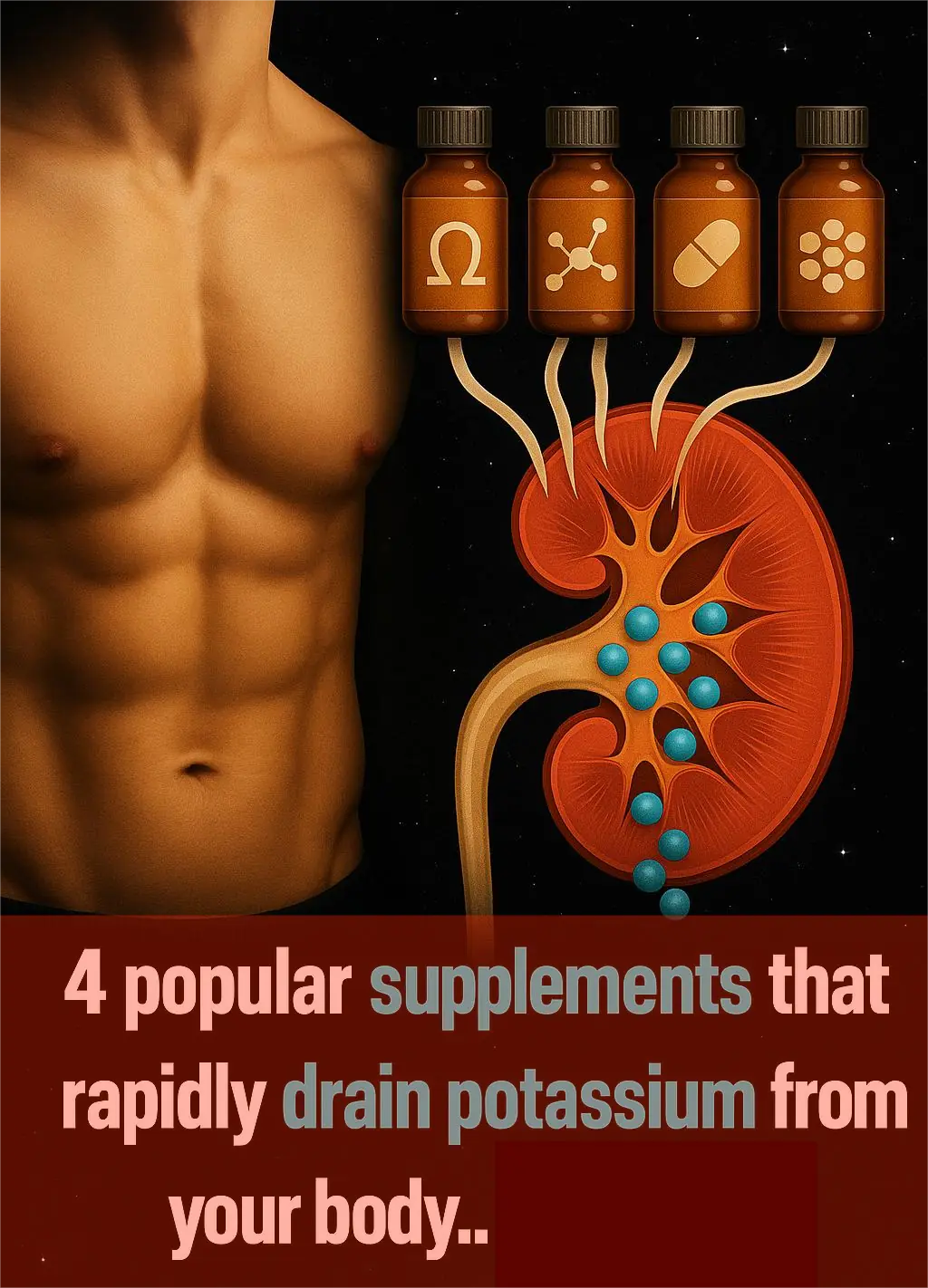
Most people don’t realize that they may already be mildly deficient in potassium. And because the symptoms—fatigue, muscle cramps, constipation, palpitations—are so common, they’re often blamed on dehydration, stress, or poor sleep. But several everyday supplements can quietly pull potassium levels even lower, triggering or worsening these symptoms.
This doesn’t mean these supplements are “bad.” It simply means that understanding how they interact with potassium is crucial for feeling your best.
✅ Why Potassium Matters So Much
Potassium is one of the major electrolytes your body relies on for:
-
Energy production
-
Healthy nerve conduction
-
Smooth muscle movement
-
Heart rhythm regulation
-
Fluid balance
Because modern diets tend to be low in potassium-rich foods like leafy greens, avocados, and beans, many people unknowingly start out at a disadvantage. Combine that with chronic stress or high supplement intake, and potassium depletion becomes even more likely.
In short: potassium is vital, deficiency is common, and some supplements can make it worse.
✅ 5 Supplements and Everyday Habits That Can Quietly Lower Potassium
Below are the biggest hidden contributors to potassium loss—and why they matter.
1. Sodium: Potassium’s Direct Rival
Sodium and potassium work opposite each other through the sodium-potassium pump, one of the most important mechanisms in human cells.
Too much sodium—especially from:
-
Processed foods
-
Salt-heavy diets
-
Sodium-based electrolyte powders
—forces the body to push potassium out of cells and excrete it through urine.
Stress makes this even worse. The adrenal hormone aldosterone causes your body to retain sodium during fight-or-flight states—and excrete potassium. Chronic stress means chronic potassium loss.
If you supplement with sodium, you should intentionally increase potassium.
2. Calcium: A Less Obvious Potassium Antagonist
Calcium is healthy—but it competes with both magnesium and potassium.
High calcium intake, especially from supplements, can:
-
Overstimulate muscle cells
-
Reduce potassium’s effectiveness
-
Cause cramps or constipation
-
Disrupt electrolyte balance
Calcium lives mostly outside your cells, while potassium lives inside them. When calcium becomes too high, it crowds potassium out—leading to symptoms that feel like deficiency.
Without enough magnesium and potassium, calcium becomes a troublemaker.
3. Vitamin D: A Powerful Nutrient With a Hidden Side Effect
Vitamin D increases calcium absorption.
More calcium → less available magnesium and potassium.
Many people take high doses of vitamin D without realizing it can indirectly trigger:
-
Heart palpitations
-
Muscle twitching
-
Water retention
-
Weakness
-
Anxiety
If you’re taking 5,000 IU or more per day, you must ensure potassium and magnesium intake is adequate. Otherwise, the extra calcium vitamin D pulls into your bloodstream can destabilize your electrolytes.
4. Vitamin B12: The Temporary Potassium Dropper
This only applies when treating a true B12 deficiency.
When you start supplementing B12:
-
Your body suddenly produces lots of new red blood cells.
-
Those new cells rapidly absorb potassium.
-
Your serum potassium drops temporarily.
This is a normal, expected side effect of B12 therapy—but it often surprises people. Increasing potassium-rich foods during the first few weeks helps prevent symptoms like weakness or cramps.
5. Other Hidden Potassium Drains
✔ Laxatives
Cause the body to flush out electrolytes, including potassium.
✔ Baking Soda (Sodium Bicarbonate)
Very high in sodium → pushes potassium out → increases urination.
✔ Diuretics (Including Coffee and Herbal Teas)
Anything that increases urine output also increases potassium loss.
This includes:
-
Coffee
-
Energy drinks
-
Hibiscus tea
-
Dandelion tea
-
OTC water pills
-
Prescription diuretics
Your kidneys remove potassium right along with excess water.
✅ How to Protect—and Restore—Your Potassium Levels
Increasing potassium intake is important, but retention matters just as much.
Here’s how to help your body hold onto potassium more effectively:
1. Support Your Adrenals by Reducing Stress
Your adrenal glands regulate electrolytes.
Chronic stress → chronically elevated aldosterone → chronic potassium loss.
People with adrenal fatigue almost always have low potassium—even if they consume enough.
Managing stress through:
-
Better sleep
-
Reduced stimulants
-
Relaxation techniques
-
Gentle exercise
…helps restore healthy potassium retention.
2. Don’t Ignore Magnesium—Potassium’s Essential Partner
Magnesium is required to move potassium into your cells.
Low magnesium = potassium can’t enter cells = persistent deficiency even with supplementation.
Signs of low magnesium:
-
Cramps
-
Twitching
-
Restless legs
-
Anxiety
-
Insomnia
-
Heart palpitations
If potassium supplements “don’t work,” low magnesium is almost always the reason.
✅ Final Thoughts
This isn’t about avoiding supplements—it’s about using them wisely.
Vitamin D, calcium, sodium electrolytes, and B12 all have real benefits. But they also influence potassium balance in surprising ways.
The key is balance.
To protect your health:
-
Prioritize potassium-rich foods (spinach, sweet potatoes, avocados, beans).
-
Ensure adequate magnesium intake.
-
Manage stress to support adrenal function.
-
Pay attention to symptoms like cramping, fatigue, and palpitations.
When your electrolytes are balanced, your supplements work better, your energy improves, and your body functions the way it’s meant to.
News in the same category


Vegetables for people with diabetes need to know
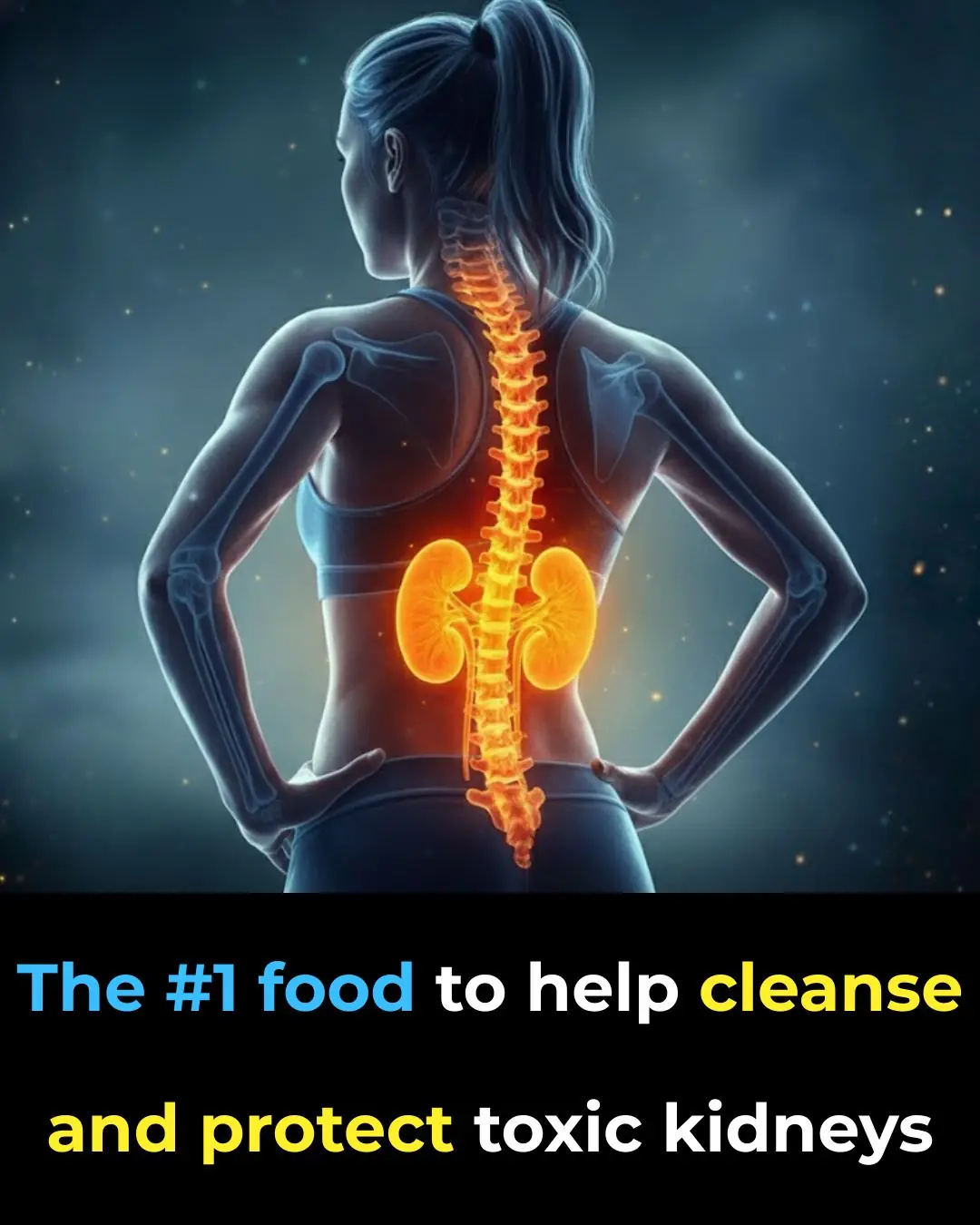
The #1 food for toxic kidneys
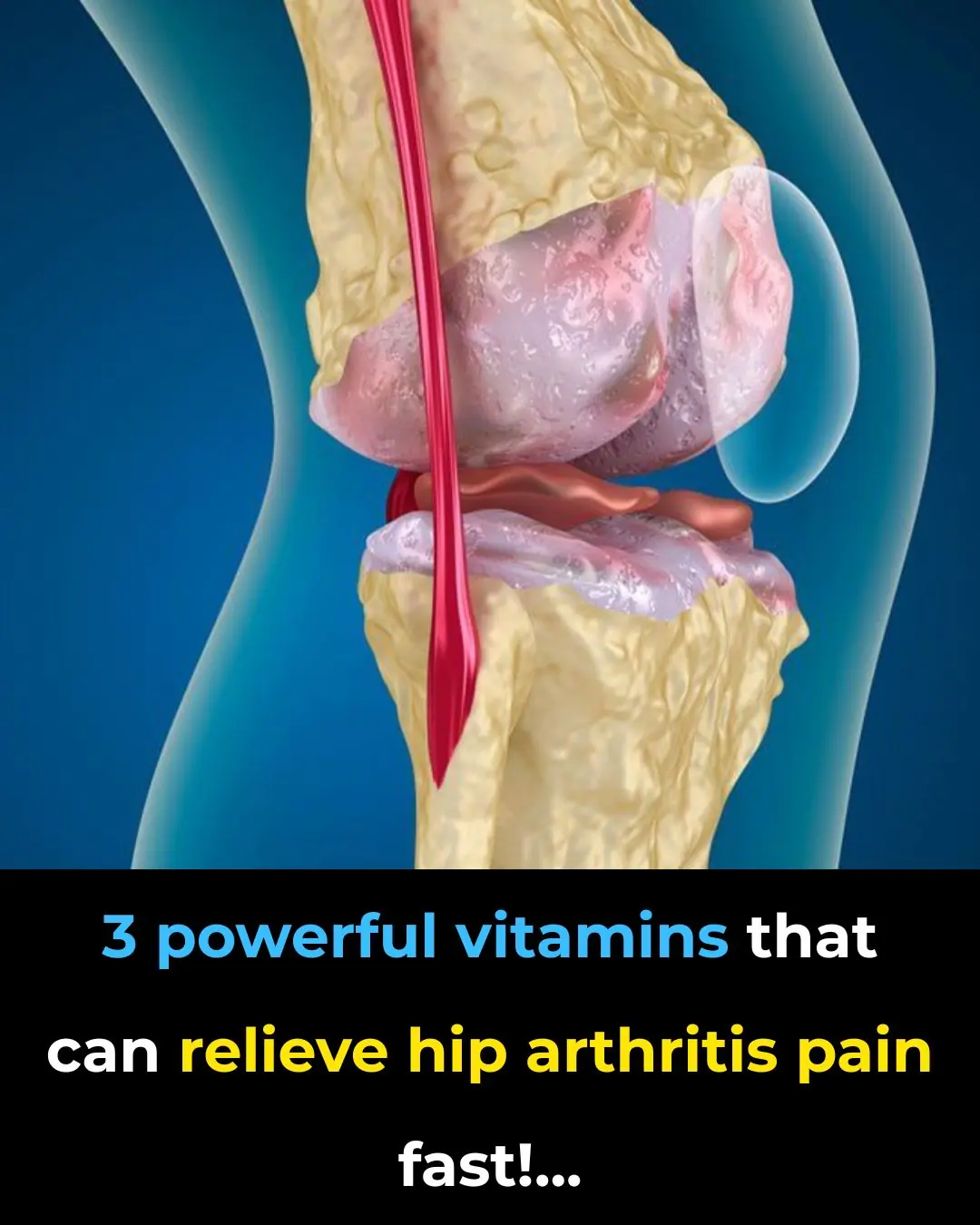
Top 3 Vitamins for Hip Arthritis – Say Goodbye to Hip Pain
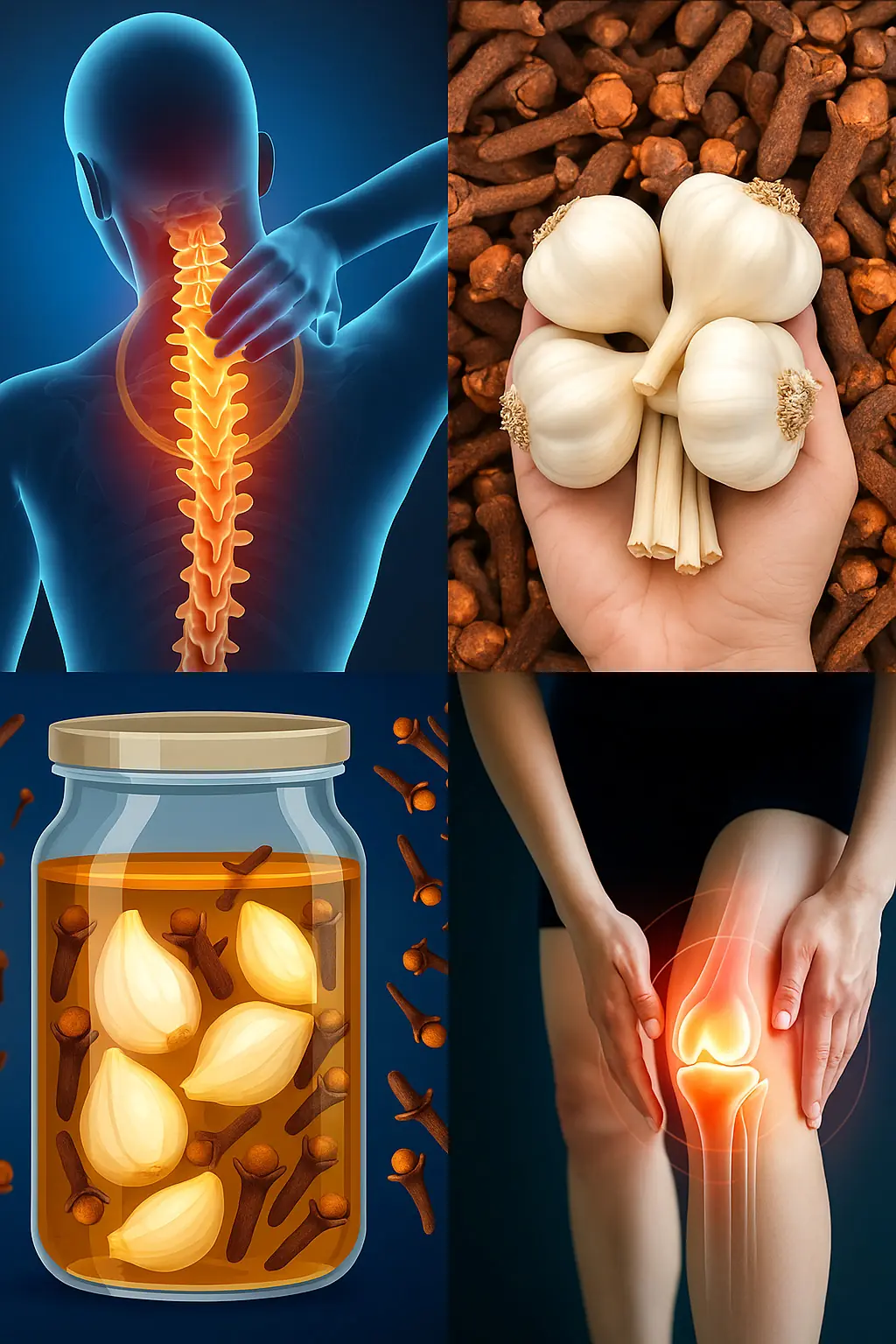
Garlic & Cloves: The Natural Remedy for Varicose Veins and Circulation

5 foods that heal your body and STARVE cancer—eat these now!
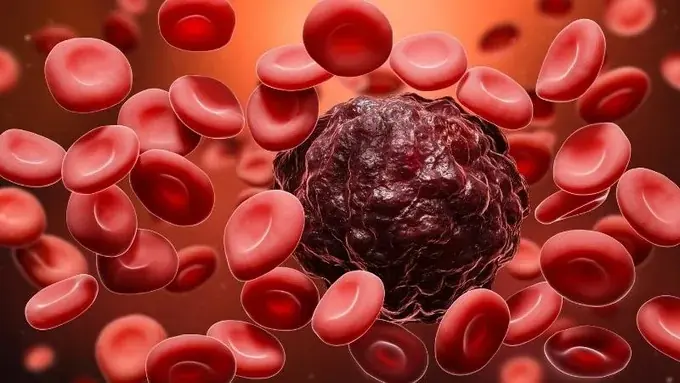
Diagnosed With Terminal Cancer That Spread to Her Brain, the Woman Broke Down in Tears After Learning the “Culprit” Came From Her Own Family

The Impressive Health Benefits of Guava Fruit and Leaves & How to Eat Guava (Evidence Based)
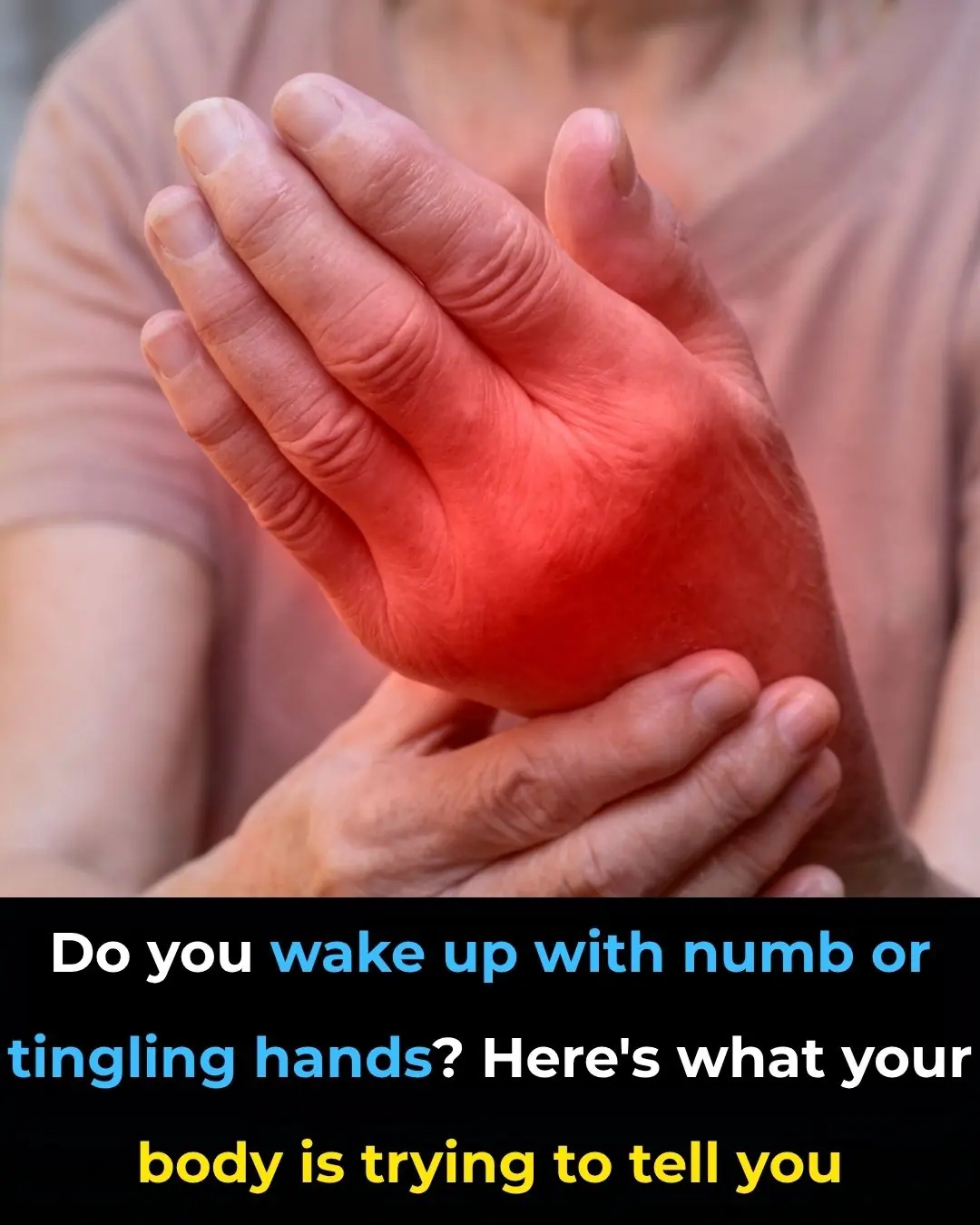
Do You Wake Up With Numb or Tingling Hands? Here's What Your Body Is Trying to Tell You
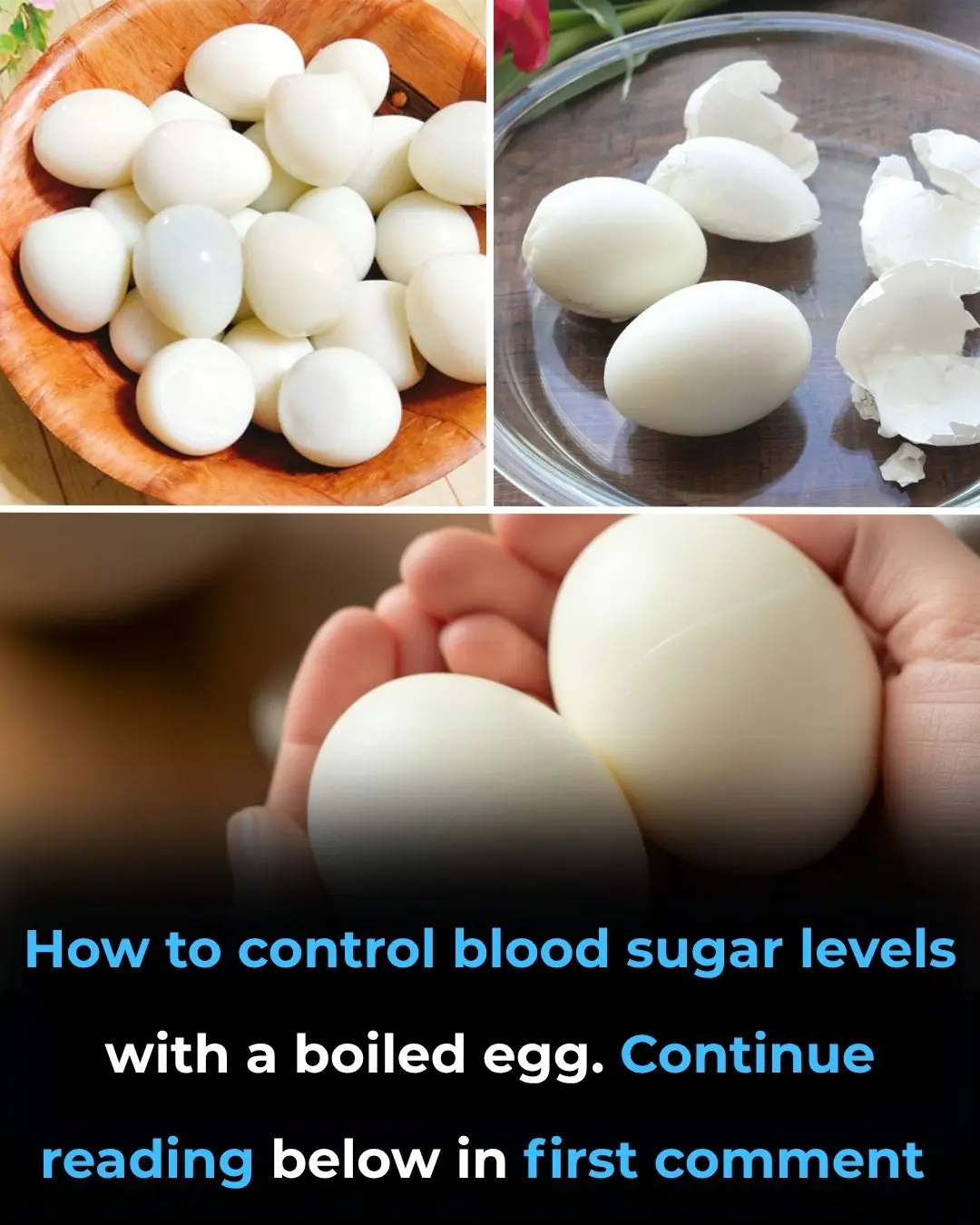
How to Control Blood Sugar Levels with a Boiled Egg
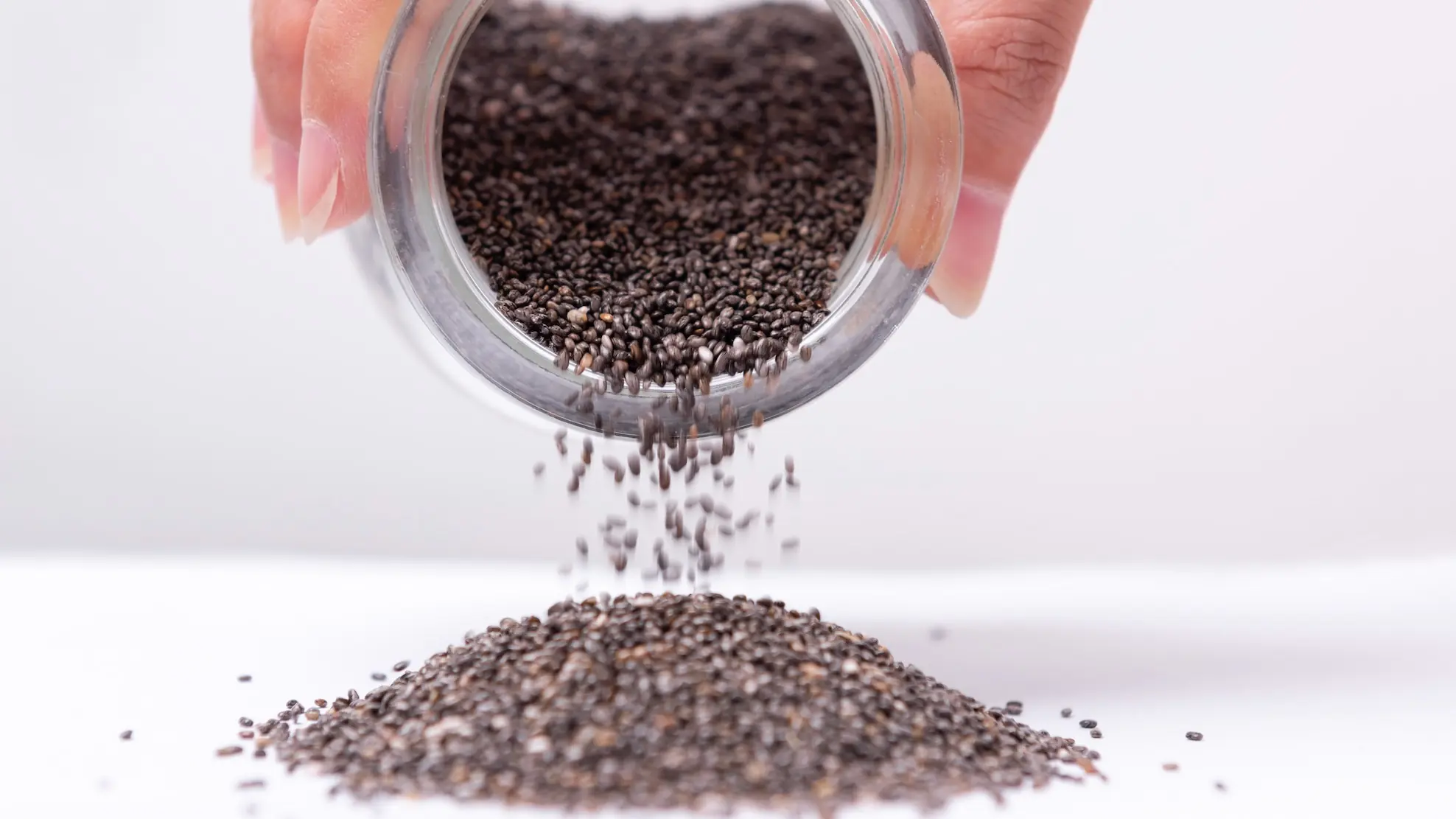
I started adding chia seeds to my breakfast every day — and within a week, I noticed some surprising changes

4 powerful vitamins that help protect you from cancer—start today!

What Happens When You Take 1 TBSP of Apple Cider Vinegar For 60 Days
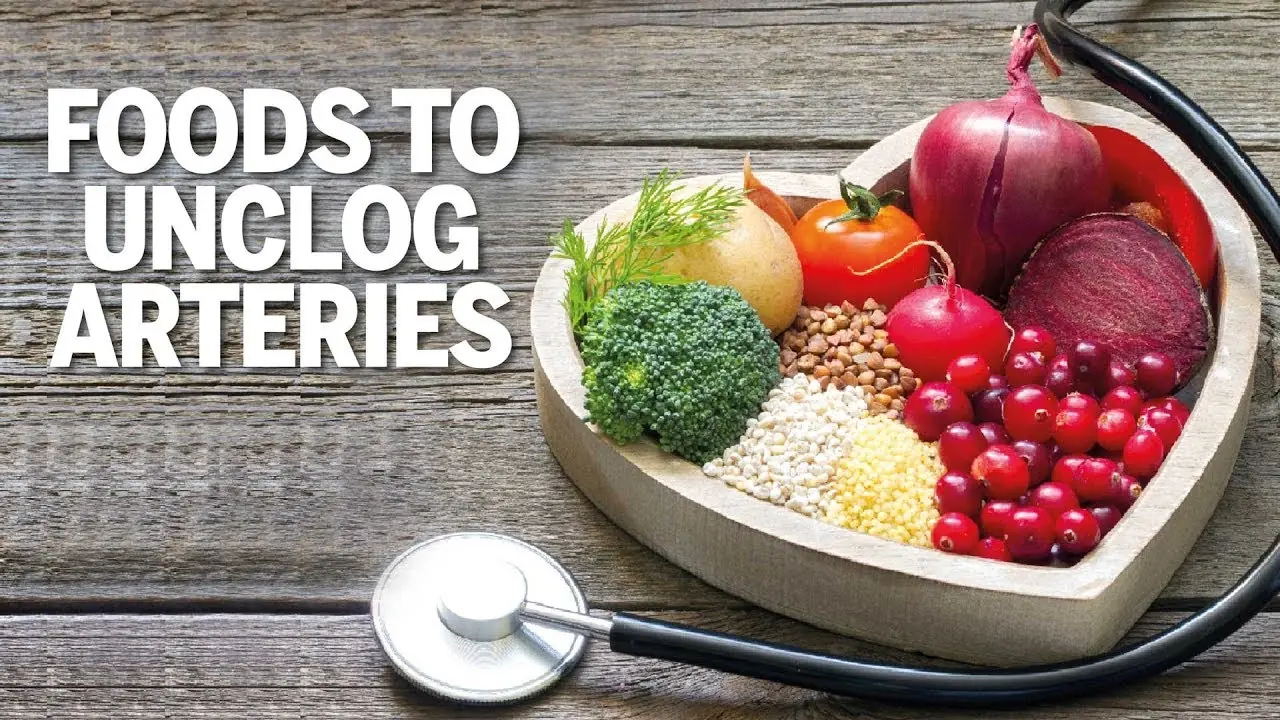
The #1 Food to Unclog Your Arteries Naturally
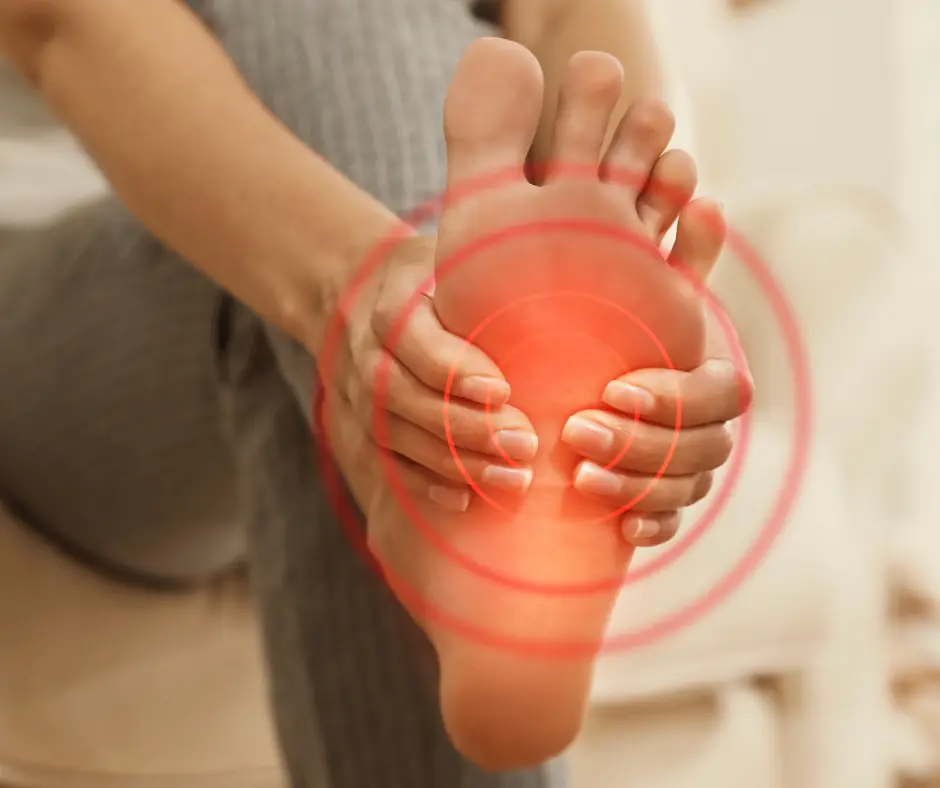
What Your Feet Can Reveal About Your Blood Pressure, Thyroid, and Arthritis Risk
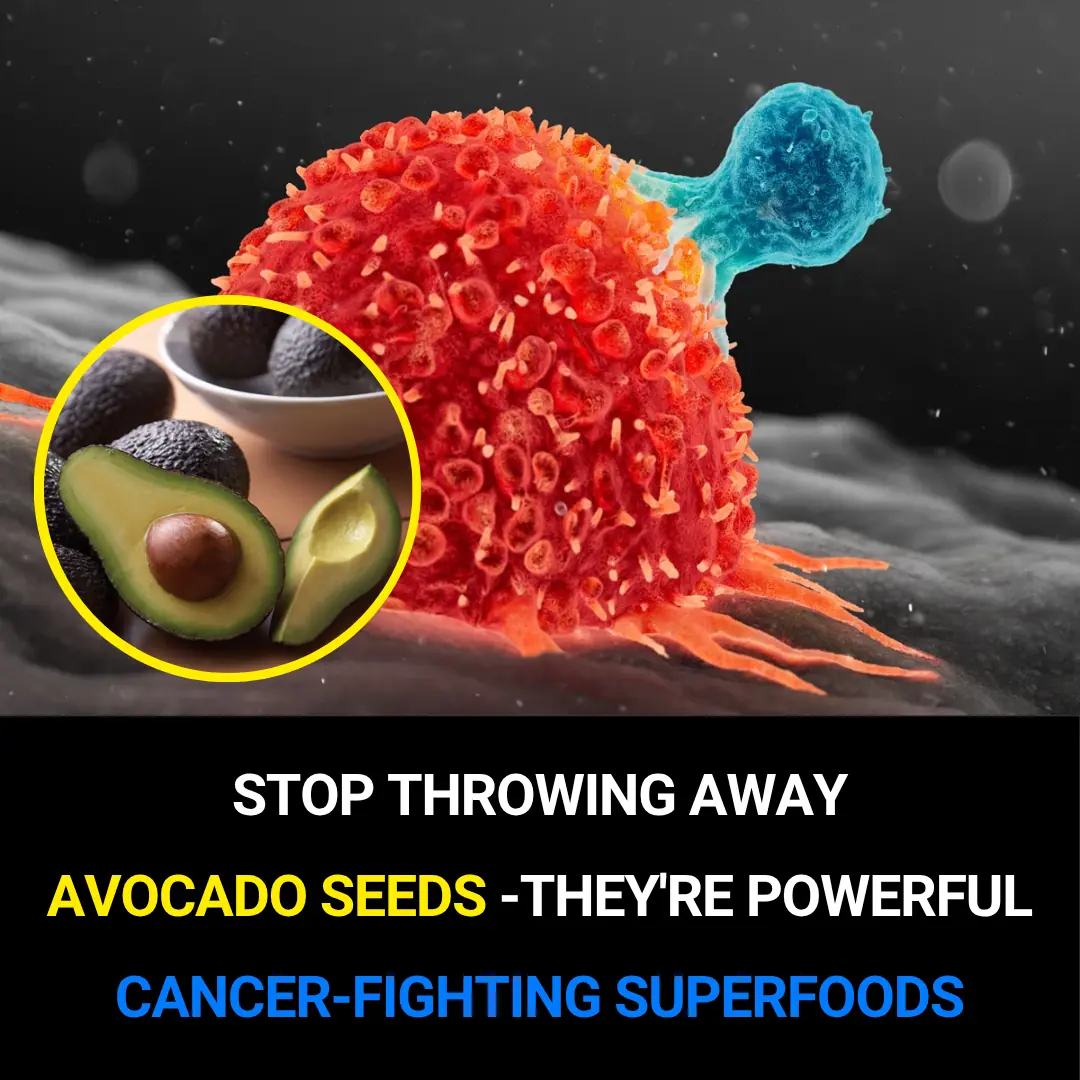
Stop Throwing Away Avocado Seeds: They’re Powerful Cancer Fighters!

How To Use Coconut Oil On Your Hair To Prevent Graying, Thinning, And Hair Loss

Things Your Pee Is Trying to Tell You

Dark chocolate and tea found to significantly lower blood pressure
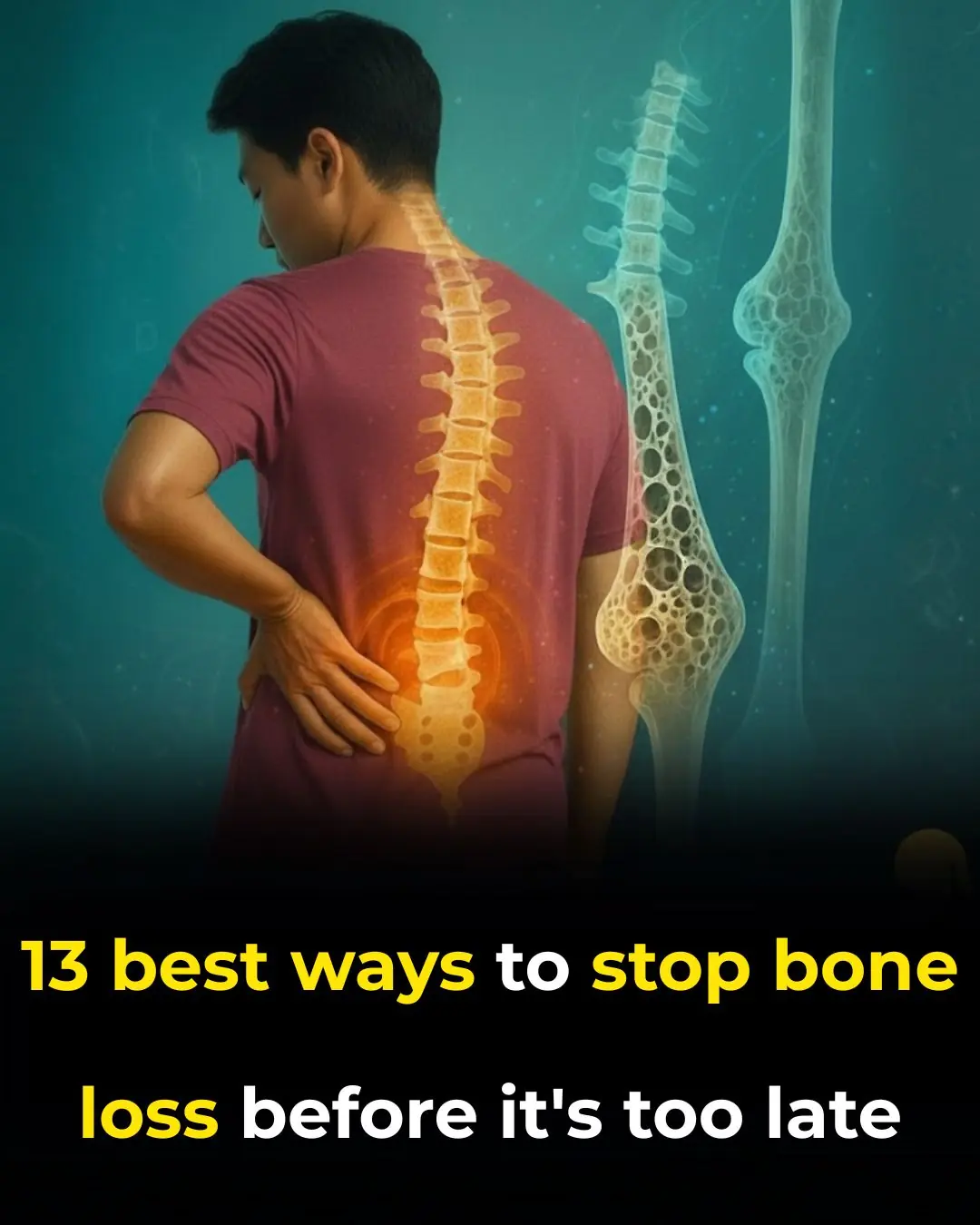
13 best ways to stop bone loss before it’s too late!
News Post

S:ida Acuta: Exploring the Healing Properties of this Herbal Remedy
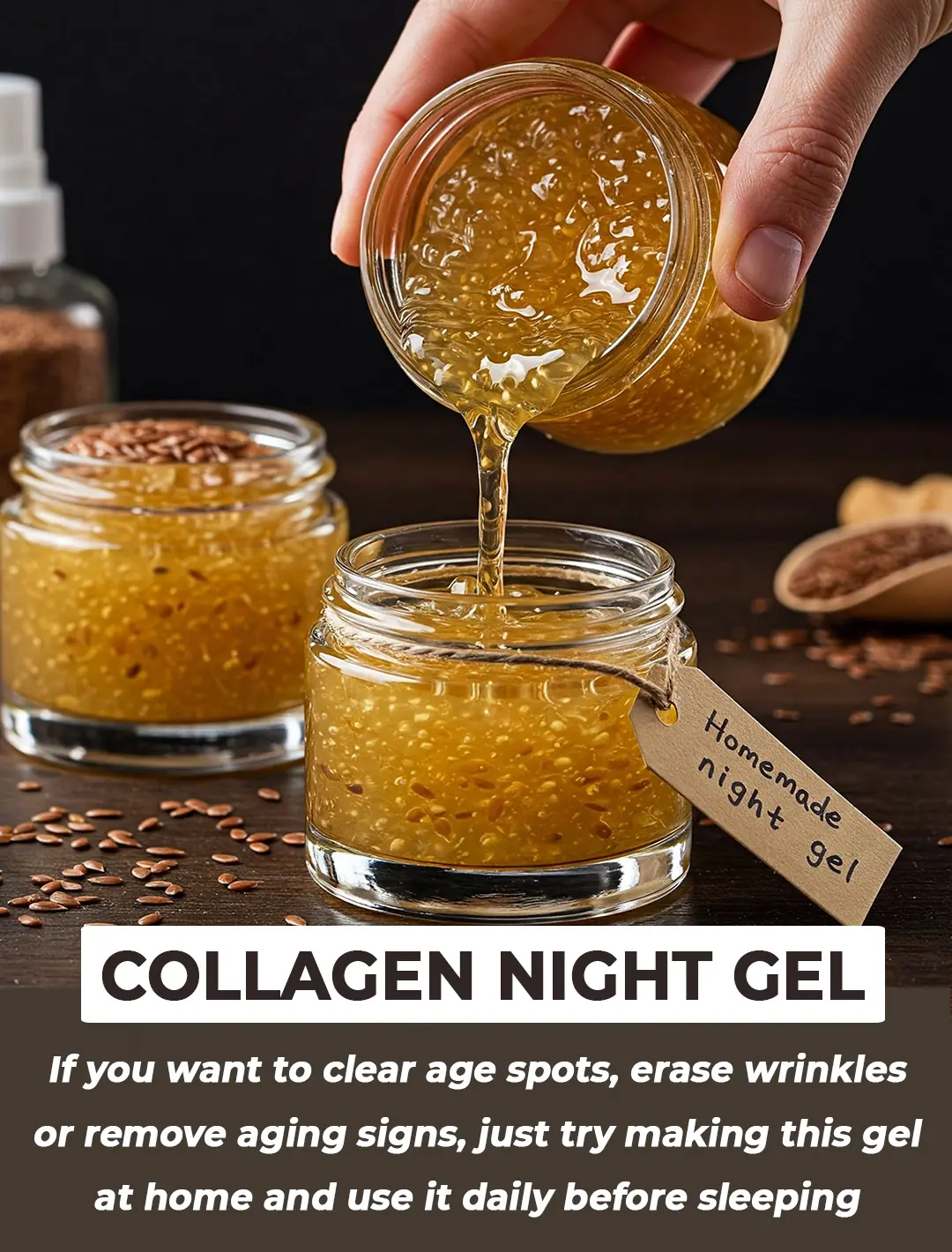
DIY Flaxseed Collagen Night Gel for Hydration and Rejuvenation
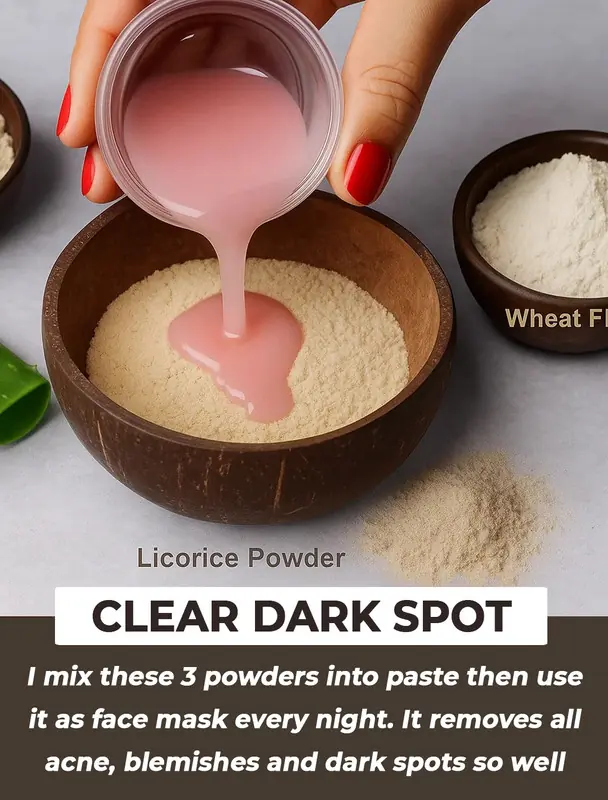
10-Day Licorice Treatment for Dark Spots: Fade Pigmentation and Achieve Glowing Skin Naturally

Easy Recipe to Make ABC Collagen Ice Cubes at Home: The Secret to Glowing, Firm Skin
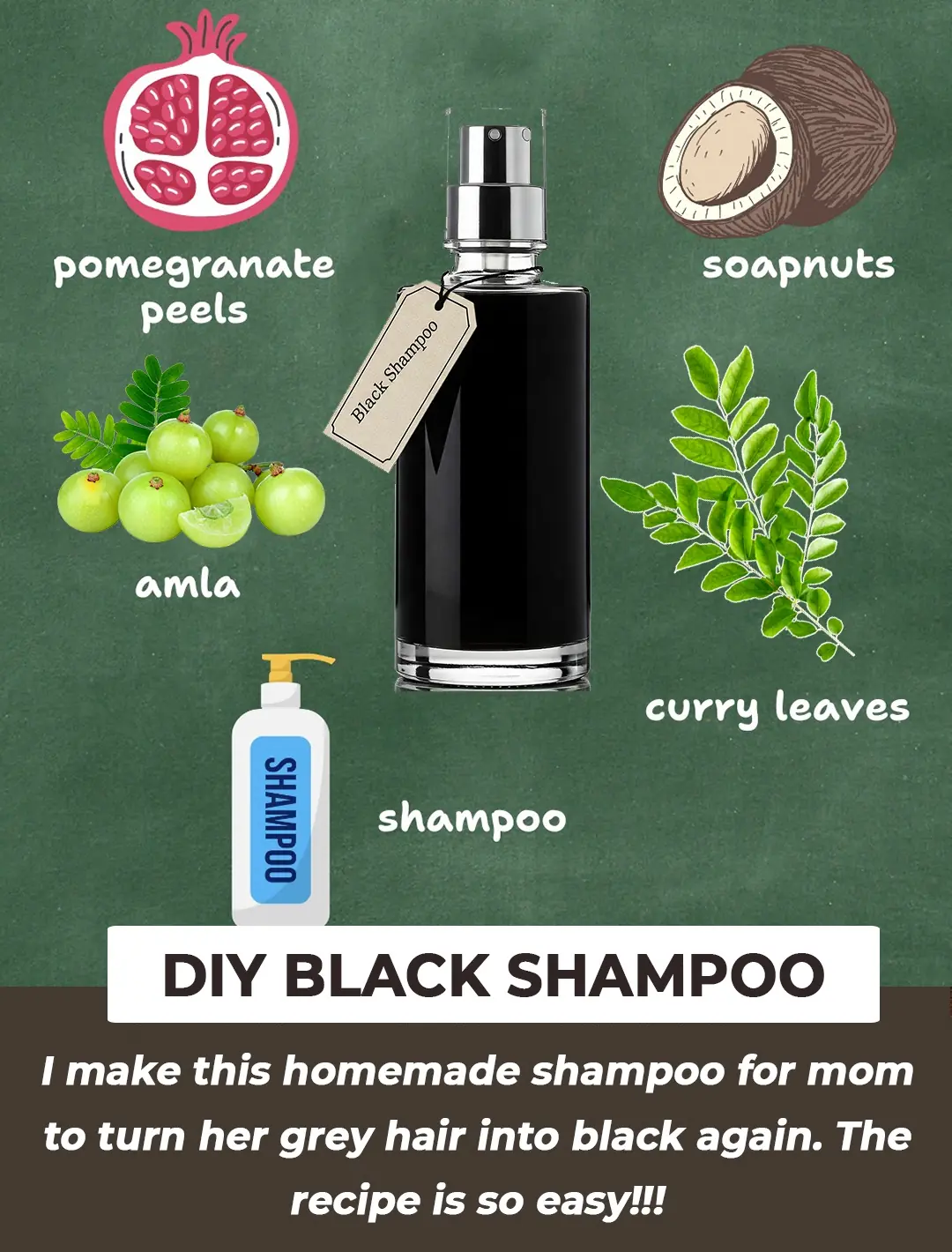
2 Mins Black Shampoo For Grey Hair

Why this doctor refuses to prescribe statins for high cholesterol

The 'divine' secret to frying

Why do we have to leave our phone face down on the table when we are not using it?

Hanging a towel on the door handle before bed: Unexpected benefits but few people know

Tips for conditioning your hair with over-cooked bamboo shoots

Treat premature gray hair thanks to the black dye formula

What Are These Strange Black Dots In Your Kitchen
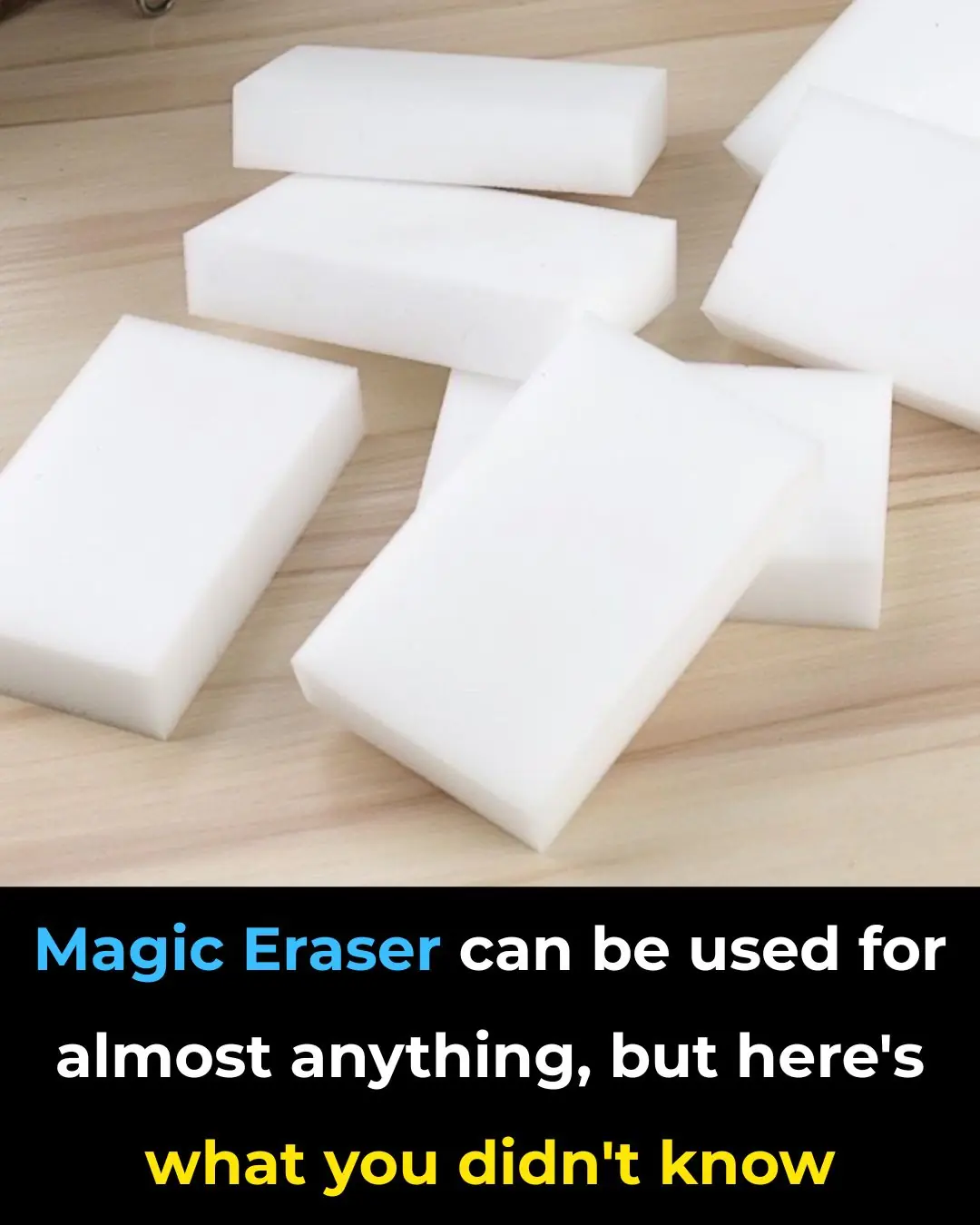
Magic Eraser can be used for almost anything, but here's what you didn't know

Wrong understanding turns water purifiers into diseases, remove them immediately to avoid harming the whole family

Vegetables for people with diabetes need to know

The #1 food for toxic kidneys

The house is full of dust even though it is cleaned regularly

Top 3 Vitamins for Hip Arthritis – Say Goodbye to Hip Pain

Pour hot water over the apple
